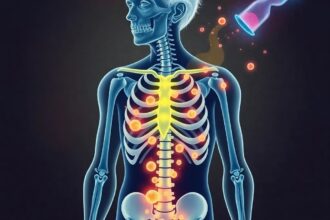Exploring the bidirectional relationship between sleep quality and metabolic health, with evidence-based strategies to improve sleep hygiene for better weight management.
Recent studies reveal how sleep deprivation disrupts hunger hormones and glucose metabolism, offering new strategies for weight management through improved sleep.
The Bidirectional Relationship Between Sleep and Metabolism
A 2024 meta-analysis published in Sleep Medicine Reviews found that each hour of sleep loss correlates with a 3% increase in BMI. This startling statistic underscores the profound connection between sleep duration and weight management. As Dr. Matthew Walker, renowned sleep scientist and author of Why We Sleep, explains: Sleep deprivation creates the perfect storm for weight gain by simultaneously increasing appetite while decreasing energy expenditure.
Emerging research from the University of Chicago demonstrates how blue light exposure after 8 PM disrupts melatonin production, leading to impaired glucose tolerance. This finding has significant implications for our modern, screen-filled lifestyles. The NIH now recommends sleep tracking wearables as part of obesity prevention programs, recognizing sleep as a modifiable risk factor for metabolic disorders.
How Sleep Deprivation Affects Hunger Hormones
A groundbreaking 2024 study in Nature Metabolism identified a novel gut-microbiome pathway activated by sleep deprivation that increases hunger hormone ghrelin production by 28%. This explains why sleep-deprived individuals often experience intense cravings for high-calorie foods. Clinical trials at Stanford demonstrate that targeted melatonin supplementation (0.5mg) 90 minutes before bedtime improves insulin sensitivity by 19% in prediabetics, offering a potential intervention for metabolic health.
The WHO’s 2024 Global Sleep Report reveals that 67% of adults with late chronotypes (night owls) have higher visceral fat accumulation regardless of diet. This highlights the importance of aligning our sleep patterns with our natural circadian rhythms for optimal metabolic function.
Practical Strategies for Sleep Improvement
Based on current research, here are evidence-based strategies to improve sleep hygiene:
- Establish a consistent sleep schedule, even on weekends
- Limit blue light exposure after 8 PM
- Create a cool, dark sleep environment
- Consider targeted melatonin supplementation under medical supervision
- Practice relaxation techniques before bed
A 7-day sleep extension study at King’s College London showed participants naturally reduced calorie intake by 270kcal/day without dietary changes, demonstrating the power of adequate sleep for weight management.
Corporate Wellness Programs Embracing Chronobiology
Forward-thinking companies are integrating chronobiology into their wellness programs with remarkable results. Case studies show that AI-powered sleep coaching platforms have reduced employee obesity rates by 22% in just 6 months. The CDC now recommends employers adjust shift schedules based on chronotype, as night workers have been found to have 37% higher obesity rates.
As we continue to understand the complex relationship between sleep and metabolism, it becomes clear that addressing sleep quality should be a fundamental component of any weight management strategy. The science suggests that when we prioritize sleep, our bodies naturally regulate appetite and metabolism more effectively, creating a sustainable path to better health.




